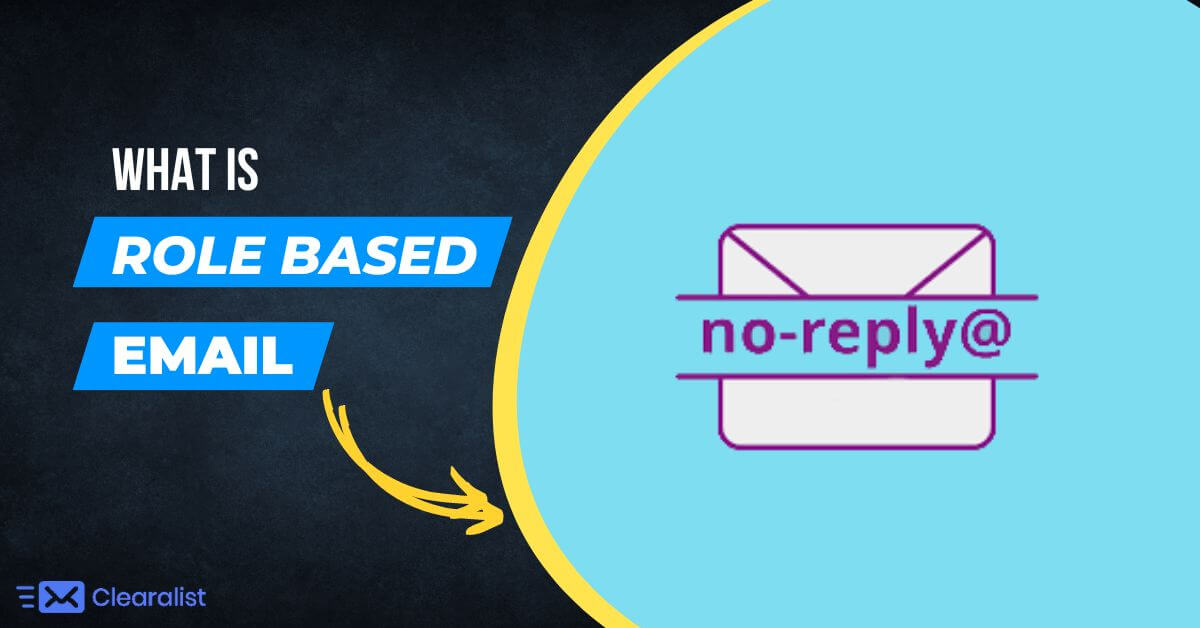As the name says, role-based email accounts are connected with a particular role like sales, editor, admin, etc. A role-based email account is not linked with one single person, but with a group of people or a department.
Throughout your email lead generation, you will accumulate different types of email accounts including role-based email accounts. While it is advisable to send emails to deliverable email accounts by an email validation service, it is still questionable if it is safe to send marketing emails to role-based email accounts.

Types of Role-Based Email Accounts?
As said role-based accounts are incorporated with a particular department, the role-based email accounts begin with admin@, editor@, sales@, inquiry @, etc. Here is the complete list of role-based email accounts by sub-categories.
1. Role-Based Emails By Broadcast
Broadcast emails are associated with a group of people. Examples of broadcast emails – support@, all@, team@
2. Role-Based Emails By Position
Role-based emails by position have a high chance of delivering to an individual, but an individual might change due to a change of job. Examples of role-based emails by rank – admin@, ceo@, editor@
3. Role-Based Emails By Testing
Such emails are not available publicly but are reserved for internal testing. Example of role-based emails by testing – test@, demo@, asdf@
4. Role-Based Emails By Compliance
Compliance-based emails are for managing compliance-related grievances Examples of role-based emails by compliance – spam@, abuse@, compliance@, complaints@
Is It Safe to Send Marketing Emails to Role-Based Email Accounts?
Role-based email accounts are always an issue for marketers as role-based email accounts are known for blocking email deliverability rates. Here are the risks correlated with role-based email accounts for sending marketing emails.
Some of these types of addresses are linked with high bounce rates and spam complaints, so a big company like Mailchimp blocks them from your import.
1. Spammers Paradise
Role-based email accounts are the most obvious to find and one can even guess the role-based email accounts easily. Role-based email accounts are accessible publically, generally on the contact us page.
Marketers with a high volume of role-based email accounts in their email list are suspected of using a collected email list by ESPs.
2. Hard to Show Permission
As a role-based email account is connected with a group of people or a department, it is harder to show explicit permission to each recipient.
3. Ending on a Blacklist
Many blacklist services like Spamhaus treat marketing emails sent to role-based email accounts as spam. Because such role-based email accounts are either collected or used without the explicit permission of recipients.
4. Higher Complaints And Low Engagement Rates
A role-based email account not only doubles the risk of spam complaints but also pulls down the overall engagement rates of your marketing campaigns.
The majority of the email service providers like MailChimp maintain a suppression list of role-based email accounts involving emails that will not be sent to such email accounts for maintaining email deliverability rates and protecting senders’ reputations.
Sending marketing emails to a few role-based email accounts that are known to engage with your email campaigns should be okay. In conclusion, if there is a high volume of role-based email accounts you must eliminate the inactive emails to keep healthy email deliverability and engagement rates.